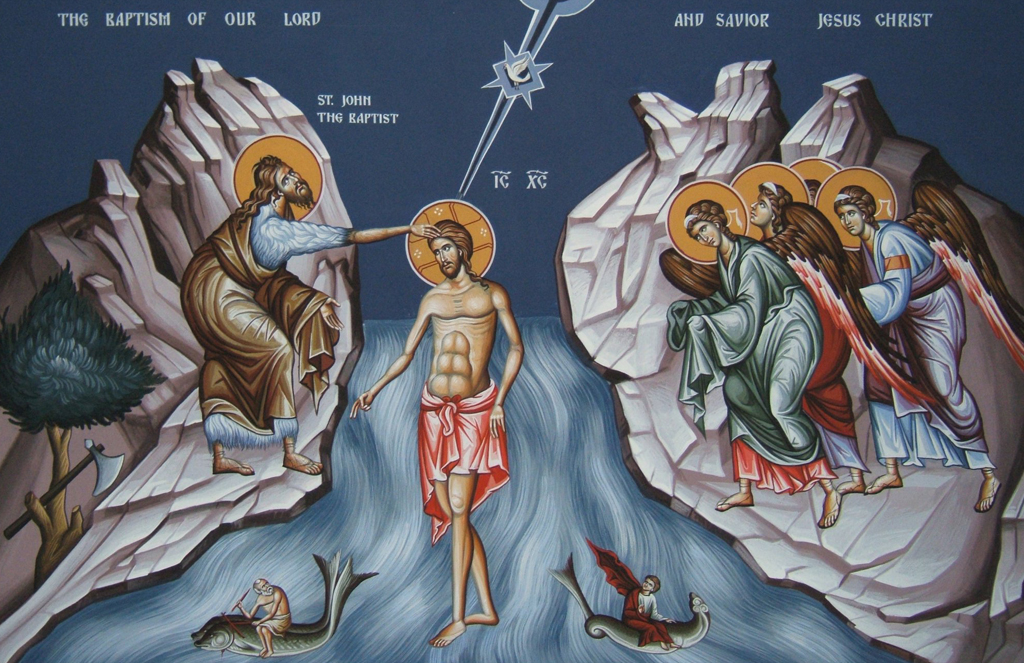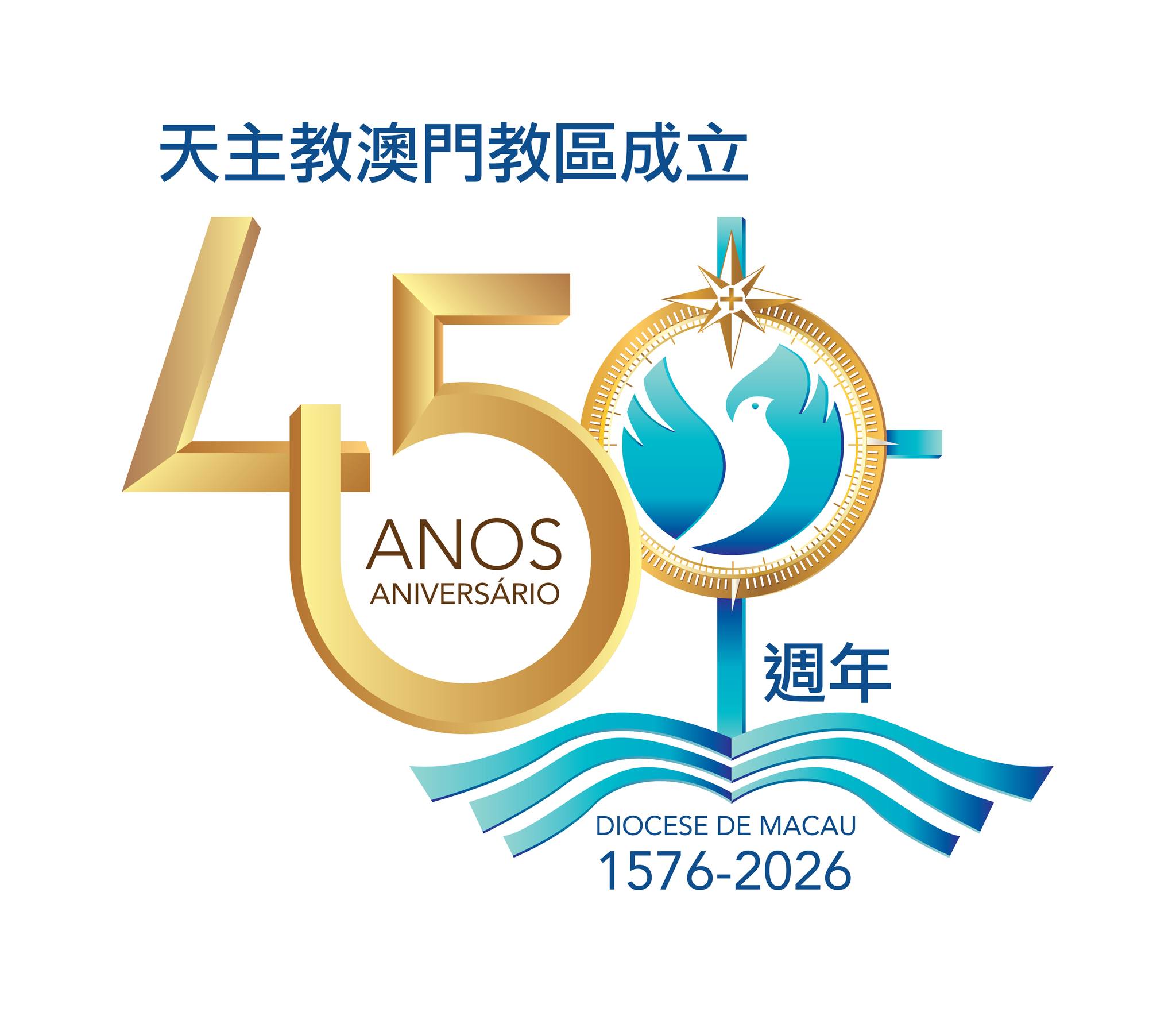13 September 2020 – 24th Sunday in Ordinary Time – Year A
Matthew 18:21-35
Fernando Armellini SCJ
Claretian Publications
The gospel opens with Peter’s question: “How many times must I forgive the offenses of my brother or sister? Seven times?” The answer of Jesus goes beyond that which already scares Peter: “No, not seven times (that is always) but seventy times seven (even more than always).”
To clarify his thoughts, he tells a parable. A debtor who owed ten thousand talents was presented to the king. The talent amounts to a huge sum. It’s unthinkable that someone could repay such amount. Showing a generosity without limits, the master of the parable—who represents God—touched by the plight of his servant, condones all the debt. There’s no sin that God cannot forgive and fault superior to his immense love.
In the second part of the story another servant who owes the first hundred denari enters. It is a considerable sum—paltry compared with that condoned by the king. The second debtor uses the same prayer, hoping to get the same compassion. The merciless servant, however, grabs him by the neck and begins to choke him, demanding for payments.
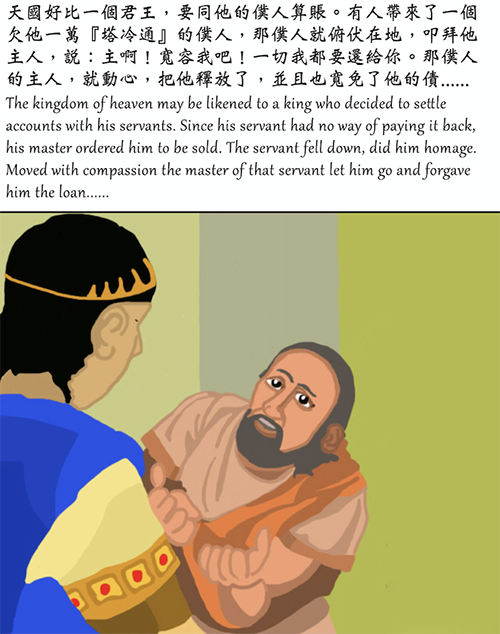
The central message of the parable is to be sought in the huge disproportion between the two debts, and in the stark contrast between the behavior of God who always forgives and that of the man who refuses to forgive. The image of suffocation gives a good idea of the psychological subjection in which the one who did wrong is reduced.
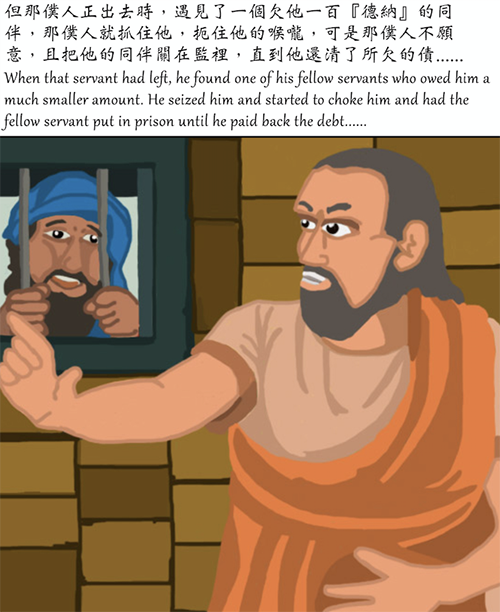
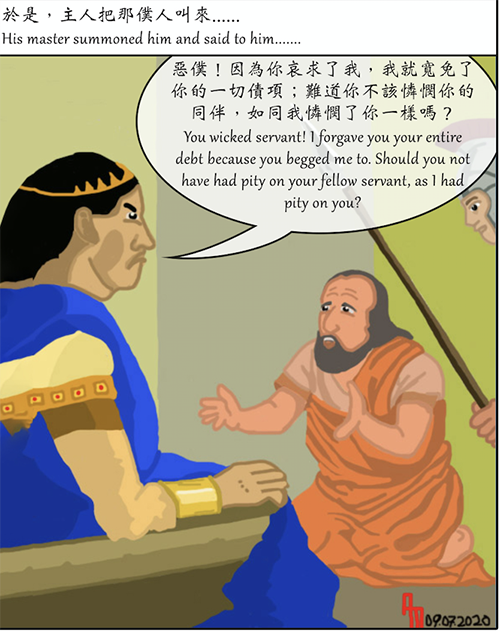
With the parable, Jesus is interested in highlighting the enormous distance that exists between God’s heart and man’s, between his love and ours. We ask the Father to “forgive our debt” in prayer, expecting from us his very own “compassion.” He wants that we do not keep someone a slave of his/her past. He wants us to understand that “love does not delight in wrong, excuses everything, believes all things, hopes all things, endures all things” (1 Cor 13:5-7). Whoever has owned this new logic is willing to lose, to forget all his own rights just to see again his brother happy, peaceful and free from his sin.
Translated by Fr. John Ledesma SDB
Abridged by Fr. Jijo Kandamkulathy CMF

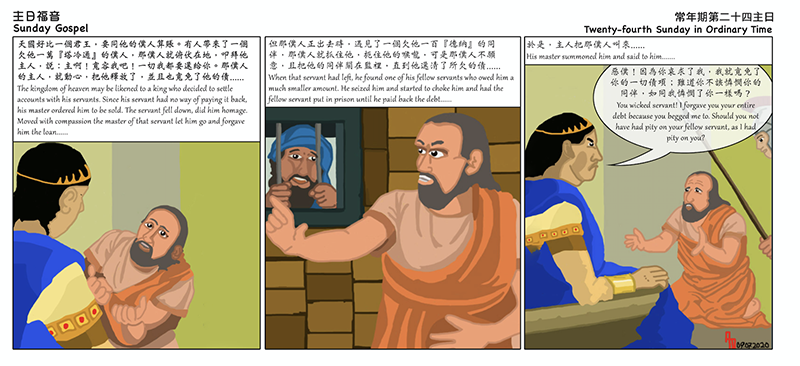
 Follow
Follow
